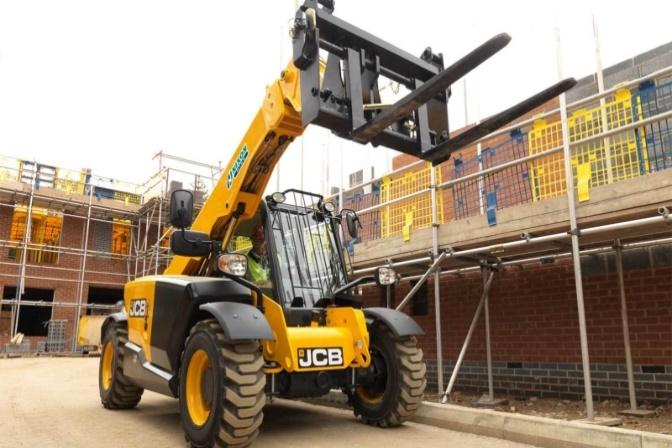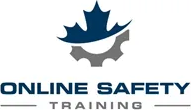Telehandler Forklift Training in Canada

The Benefits of Telehandler Forklift Training in Canada
Telehandler forklifts, also known as telescopic handlers, are versatile machines commonly used across various industries in Canada, including construction, agriculture, and warehousing. These machines play a pivotal role in lifting, reaching, and transporting heavy loads to elevated work areas. However, the operation of telehandler forklifts can be complex and potentially hazardous without the proper knowledge and skills. Telehandler forklift training is essential for ensuring a safer and more efficient workplace environment. In this article, we will explore the numerous benefits of telehandler forklift training in Canada and how it contributes to enhancing safety and productivity.
- Reduced Accident Risk
The foremost benefit of telehandler forklift training is the substantial reduction in the risk of accidents. Telehandler forklifts are powerful machines with the potential to cause serious accidents if not operated correctly. Without proper training, operators may lack essential knowledge about safe operating practices, load handling, and risk mitigation. Training programs educate operators on these critical aspects, significantly lowering the likelihood of accidents, including tip-overs, collisions, and load mishandling.
- Compliance with Canadian Regulations
Canadian workplace safety regulations mandate that employers provide telehandler forklift training to their employees. Complying with these regulations is not only a legal obligation but also a fundamental aspect of worksite safety. Failing to provide adequate training can lead to legal consequences, fines, and disruptions to business operations. Comprehensive telehandler forklift training programs are designed to meet Canadian safety standards, ensuring that organizations remain compliant with safety requirements.
- Enhanced Operator Competence
Telehandler forklift training programs equip participants with a deep understanding of the equipment and its safe operation. Operators learn how to perform pre-operation inspections, execute safe start-up and shutdown procedures, handle loads effectively, and respond to emergency situations. This increased competence results in safer and more efficient work practices, better control of the equipment, and a lower likelihood of accidents.
- Improved Safety Awareness
Training programs emphasize the importance of safety awareness among telehandler forklift operators. Participants learn to assess potential hazards, identify risks, and adopt a proactive approach to safety. This heightened safety awareness extends beyond telehandler operation; operators become more vigilant in recognizing and addressing potential dangers in their work environment, ultimately contributing to overall worksite safety.
- Customized Training
Telehandler forklift training can be customized to address specific worksite needs and challenges. Organizations can tailor the training to account for unique factors such as load types, work environments, and industry-specific requirements. Customized training ensures that operators are well-prepared for their specific job requirements, reducing the likelihood of accidents related to their specific tasks.
- Increased Efficiency
Well-trained telehandler forklift operators are more efficient in their work. They understand how to use the equipment effectively and can complete tasks more quickly and accurately. This increased efficiency not only boosts worksite productivity but also reduces the time operators spend exposed to potential safety hazards.
- Emergency Response Preparedness
Telehandler forklift training includes instruction on emergency response procedures. Operators learn how to react effectively in critical situations, such as equipment malfunctions, power failures, or medical emergencies involving themselves or their colleagues. Being prepared for emergencies minimizes their impact and ensures a timely and effective response, which can be crucial in mitigating potential accidents and injuries.
- Reduction in Insurance Costs
Organizations that invest in telehandler forklift training may benefit from reduced insurance costs. Insurance providers often offer lower premiums to companies that demonstrate a commitment to safety through comprehensive training programs. Over time, these cost savings can offset the initial investment in training while providing a financial incentive to prioritize safety.
- Boosted Operator Confidence
Telehandler forklift training instills confidence in operators, helping them feel more secure and capable while using the equipment. Confident operators are less likely to make mistakes or take unnecessary risks, contributing to overall worksite safety.
- Cultivation of a Safety Culture
Implementing telehandler forklift training fosters a culture of safety within the organization. When employees see that their employers prioritize safety through education and training, they are more inclined to adopt safe practices and encourage their colleagues to do the same. This long-term commitment to safety helps create a safer worksite environment, where safety is not just a requirement but a shared value.
Telehandler forklift training is an essential component of worksite safety in Canada. By reducing the risk of accidents and injuries, ensuring compliance with regulations, enhancing operator competence, and promoting safety awareness, it significantly contributes to creating a safer and more efficient workplace environment. Moreover, it prepares operators to respond effectively to emergencies, reduces insurance costs, and cultivates a robust safety culture within the organization.
Investing in telehandler forklift training is not merely a legal requirement; it is a crucial step in safeguarding the well-being of workers and ensuring the overall success of any worksite that utilizes telehandler forklifts. It is an investment in both safety and productivity, ultimately benefiting the organization as a whole. Operators who prioritize safety through proper training not only protect themselves but also set a positive example for others, creating a safer workplace culture for everyone to thrive in.
Click here for online telehandler forklift training.
Click here for Government of Canada information.
Categories
- Aerial Lift
- ATV Training
- Bear Awareness
- Chainsaw Training
- Confined Space
- Defensive Driving
- Forklift Training
- Lockout Tagout
- Online Safety Training
- Overhead Crane
- Pipeline Construction Safety Training
- Propane Handling
- Safety Training Benefits
- Scissor Lift
- Skid Steer Training
- Space Awareness
- TDG
- Telehandler Forklift
- Traffic Control
- Train the Trainer course
- Training Course
- Uncategorized
- WHMIS
- Workplace Harassment and Violence Preventiont
